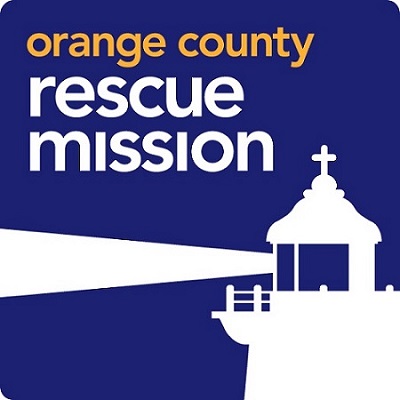Tag: data for good

Today the UK Government’s Department for Culture, Media and Sport (DCMS) launched its consultation into the new data strategy for the UK. The consultation lays out an ambitious approach to protect consumers and deliver positive change in the UK. We welcome the announcement and share its vision for a thriving, innovative digital Britain, one where people feel confident that their data is looked after and know that their privacy is protected. We’ve always believed that data has the power to help improve lives, businesses and economies both in the UK and around the world. Over the last 18 months data-driven services have helped people manage their money during unprecedented economic and financial uncertainties; helped small businesses connect with their customers; and supported charities, the NHS and local Government in deploying resources and support to those who need it the most. Now, data can help rebuild the economy, nurture the green shoots of future success, help people take control of their financial lives, and position the UK as a global leader in consumer protection and technological innovation. We look forward to engaging with the consultation process, and working with stakeholders across the ecosystem to help shape that future vision. You can find the full consultation document here and this morning’s press announcement from the Government here.

In the United Kingdom, the Financial Inclusion Commission has previously expressed concern that 31 percent of the adult population has experienced one or more signs of financial distress, such as regularly accruing overdraft charges and using credit to pay for essentials each month. While the Bank of England has warned U.K. households about the risk and effects of their alarming, yet growing, dependence on loans and credit cards, knowing how to manage debt successfully is a vital skill many lack. While most individuals do comfortably manage their debt repayments, many unexpectedly face tough times, especially following disruptive life events that complicate financial management. Since joining Experian from university in 1992, I have been involved in a number of developments and initiatives to help people better manage their money, particularly during difficult times. Years ago, I oversaw the launch of our first telephone helpdesk for the UK public, and today I still answer questions online and occasionally on the radio from individuals worried about their credit scores and loan payments. After years of one-on-one interactions, my team and I have discovered that the key to growing our capacity to serve the community is through partnerships. To provide more effective support for U.K. consumers, Experian began to partner with debt advice charities that give free and professional guidance to people, including about credit score issues. Experian’s role is to make sure debt advisors understand the nuances of credit reporting and credit scoring when talking to and helping their clients. We provide this support in a number of ways. In the last year alone, we have trained more than 600 debt advisors through workshops and seminars, and provided free credit reports to more than 60,000 individuals through debt counselling outlets. Additionally, we have used our insight and data consultancy services to help a number of charities better understand, engage with and support their clients, for example, by identifying their clients’ preferred communications channels. This has included the Money Advice Trust, which runs National Debtline, and StepChange Debt Charity, a leading UK debt counselling provider. Our partnerships within the debt advice sector have not only enabled us to support, educate and empower more consumers to reach their financial goals, but also helped Experian better understand consumers’ greatest fears and misconceptions when it comes to finances. I have enjoyed representing Experian for the past 25 years including working with a number of great organizations and really passionate individuals – so much so that I jumped at the opportunity to join the board of a new debt advice charity, The Debt Counsellors Charitable Trust, a couple of years ago which was very much focused on helping the most vulnerable people. The relationships I’ve developed with these intelligent, ambitious debt advice advisors and charities has really inspired and humbled me. They work tirelessly every day to ensure households in the U.K. can reach their financial milestones – including, importantly, when things go wrong – and I am grateful to be a part of this important network. James Jones: Head of Consumer Affairs, U.K.

Patients ideally should know what they’re going to owe when they show up for an appointment – the last thing they need is a big financial surprise to add to the stress of their visit. Similarly, doctors, nurses, hospitals and all healthcare providers help people to stay healthy day in and day out. Providers should be able to go to sleep at night knowing that they’ll be fairly compensated for the work that they do. However, making that happen isn’t easy. Behind the scenes, contracts, benefits and eligibility between medical groups, hospitals and insurance payers are fairly nuanced and complex. Clients benefit when it comes to how much a patient owes a hospital or medical group after treatment, rough estimates aren’t ideal – perfection is difficult/ create problems and issues. Billing must have pinpoint accuracy and add nuance based on unique contract terms that all medical groups and hospitals sign with their employers and payers. The details can actually be quite difficult to keep straight, and there is an extensive amount of variation in each contract’s rules. Experian Health works to make payment transparency the norm, so that patients know what to expect and healthcare providers are paid fairly, accurately and in a timely fashion. I began working for Experian in 2004 but my interest in product development and research eventually led me to Experian Health. My team of more than 100 Experian employees painstakingly reviews contracts, patient eligibility, benefits information and historical claims to generate an accurate fee estimate for each patient’s medical visit. Nuance/aiding are helping to work toward this. We utilize up-to-date technology that organizes all the information we find in an extensive database and review the claims on behalf of both our medical group clients and patients. The biggest challenge for me and my team is anticipating both patients’ and hospitals’ future needs and innovation in the field. Any time healthcare policies are changed or reimbursement guidelines shift, it affects our clients and requires nimble thinking on our part. How do we ensure that our technology is as modern as possible and our team members stay current on the latest trends and news? I’m looking forward to seeing how we continue adapting in the future.

I’m the Managing Director of Serasa Experian, meaning I work with Experian’s Business Services Unit to identify how data can unlock new opportunities for businesses across Brazil. I worked in the banking industry for more than twenty years, but joined Experian two years ago because I was excited by the company’s innovative use of data to solve real-world problems. I regularly work with small businesses in Brazil and hear firsthand about the challenges they face. From client conversations and recent data analysis, my team discovered that companies across the country were having difficulty identifying trustworthy suppliers for their supply chain. In fact, a recent Experian survey found that eight percent of suppliers pose risks to their business partners due to labor, tax or environmental problems. Verified background information – such as financial history and risk of default – are surprisingly difficult to find, making it difficult and time-consuming for small businesses to find trustworthy supply chains. We knew there had to be a simpler way to match companies. That’s why we created Serasa Conecta, an online marketplace that connects verified suppliers with verified buyers. Using Seresa Conecta, a buyer of a clothing store, for example, can register a customized page and scroll through the pages of trusted retail suppliers who can partner with their business. Suppliers, on the other hand, can use the portal to identify new customers to help increase sales and build their reputation. On the backend of the marketplace, Experian analyzes each company’s background, and can help determine which companies could forge the best partnerships based on simple reports and balance sheet analyses. Whenever a buyer selects a supplier, Experian also runs a risk assessment of both parties to ensure it’s a good fit. When Serasa Conecta was launched, buyers and suppliers in Brazil were thrilled by the marketplace’s ability to both increase sales and verify safe companies quickly and easily. I take pride in knowing my team and I have made a positive impact on thousands of small businesses in the country. Although I have only been at Experian Serasa for two years, I am excited to see how data can continue to unlock opportunities, connecting communities and improving the lives of companies around the world.

 With the objective of supporting the local community and helping Orange County residents overcome financial issues, we have partnered with the Orange County Rescue Mission (OCRM) to spread financial literacy by providing residents with the insight and resources to guide them on a journey to independence.
With the objective of supporting the local community and helping Orange County residents overcome financial issues, we have partnered with the Orange County Rescue Mission (OCRM) to spread financial literacy by providing residents with the insight and resources to guide them on a journey to independence.

 It seems like every conversation I have regarding how the U.S. economy is doing, I always think about small businesses. After all, small businesses are what drive our economy forward. They are the center of commerce for our country, and create the most jobs for our growing workforce. Quite honestly, without them, who knows where our country would stand today.
It seems like every conversation I have regarding how the U.S. economy is doing, I always think about small businesses. After all, small businesses are what drive our economy forward. They are the center of commerce for our country, and create the most jobs for our growing workforce. Quite honestly, without them, who knows where our country would stand today.